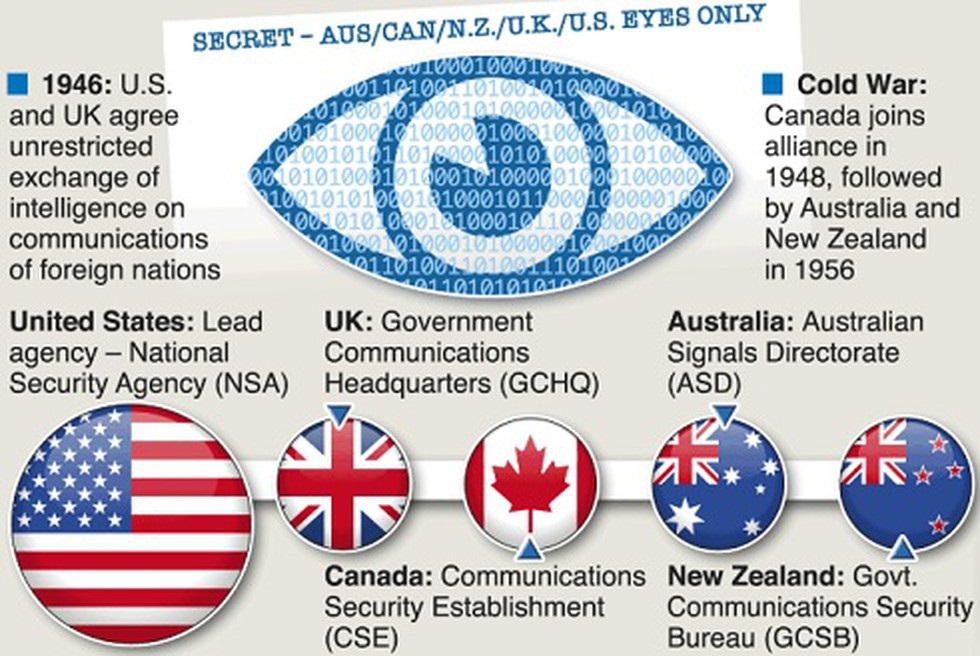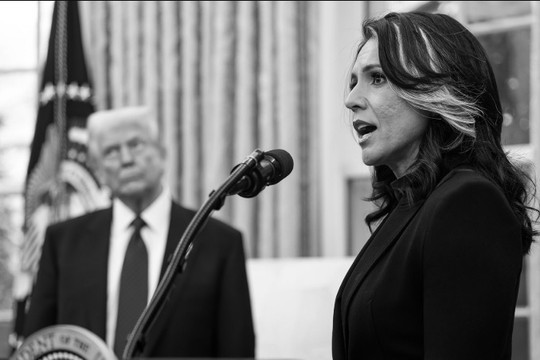Director of National Intelligence (DNI) Tulsi Gabbard in the Oval Office at the White House in Washington, on 12 February 2025.
Photo: Consolidated News Photos/Newscom/MaxPPP
CBS News has learned that Tulsi Gabbard, the director of national intelligence, issued a directive weeks ago to the U.S. intelligence community ordering that all information regarding the Russia-Ukraine peace negotiations not be shared with U.S.-allied intelligence partners.
The memo, dated July 20 and signed by Gabbard, directed agencies to not share information with the so-called Five Eyes, the post-World War II intelligence alliance comprising the U.S., U.K., Canada, Australia and New Zealand, multiple U.S. intelligence officials told CBS News. They spoke under condition of anonymity to discuss sensitive national security matters.

The officials said the directive classified all analysis and information related to the volatile Russia-Ukraine peace negotiations as "NOFORN," or no foreign dissemination, meaning the information could not be shared with any other country or foreign nationals. The only information that could be shared was information that had already been publicly released. The memo also limited distribution of material regarding peace talks to within the agencies that created or originated the intelligence.
The memo does not seem to prevent the sharing of diplomatic information gathered by other means separate from the U.S. intelligence community, or military operational information unrelated to the talks — such as the details the U.S. shares with the Ukrainian military to aid in their defensive operations.
"In general, the value of the Fives Eyes intelligence partnership is that when we are making and they are making policy decisions, we can both augment each other's intelligence and therefore know more about the plans, intentions, and capabilities of our adversaries," explained Steven Cash, a former intelligence officer at the Central Intelligence Agency and Department of Homeland Security.
"Among the reasons for that sort of default is the expectation that we and the other four are all sitting on the same side of the table with some other adversary on the other side," Cash said.
He said it's important for the allies to have "a common intelligence picture" so policymakers and negotiators "can coordinate our positions and get the best deal we can, or fight the best war we can." Cash is the executive director of The Steady State, a nonprofit organization made up of former U.S. intelligence and national security professionals and government officials concerned with threats to American democracy.
Cash and CBS News national security contributor Sam Vinograd, a former homeland security official, said Five Eyes often has intelligence that helps the U.S. produce comprehensive intelligence assessments, especially about Russia, given the access Five Eyes partners have to other intelligence sources.
"Shutting our most trusted partners off from intelligence assessments could have a chilling effect on critical intelligence sharing if our partners believe they're being shut out of key access — including on key matters in their region. They could decide to take similar steps toward the U.S.," Vinograd said.
She added, "Policy-wise, if our Five Eyes partners think they are being shut off from key information. They could choose to create new structures and channels without us. A lack of full collaboration with our closest partners could lead them to discuss matters impacting our national security without our input and perspective."
Still, other former intelligence officers contend Gabbard's directive is commonplace within the U.S. intelligence community, and the criticism is much ado about nothing. They say both the U.S. and the other members of the intelligence alliance frequently withhold information from each other in diverging interest areas.
read more in our Telegram-channel https://t.me/The_International_Affairs

 11:58 23.08.2025 •
11:58 23.08.2025 •























